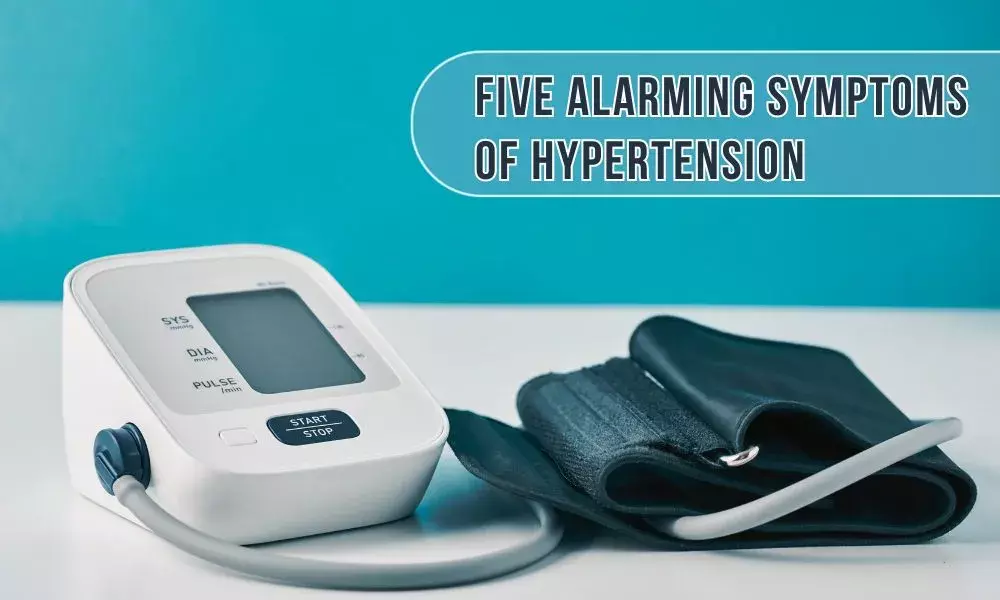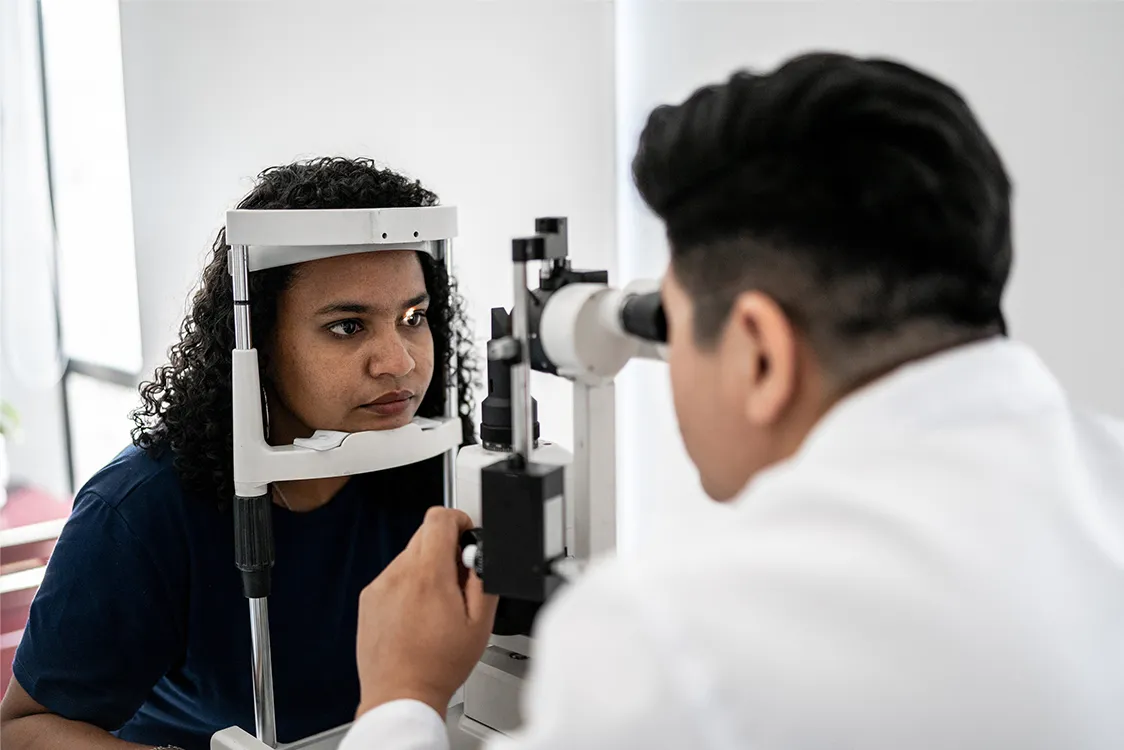Hypertension, also called high blood pressure, is increasingly becoming a global health concern. The sedentary lifestyle is undoubtedly one of the significant contributors.
Hypertension can cause severe damage to our heart health. Excessive blood pressure can harden the arteries and reduce oxygen and blood flow to the heart, causing irregular heartbeat, chest pain, or heart attack.
Table of Content
-
What is Hypertension?
-
Important highlights from the WHO report
-
Risk factors of high blood pressure
-
Five Alarming Symptoms of Hypertension
-
Preventive Tips
What is Hypertension?
High blood pressure or hypertension occurs when the blood pressure rises beyond normal levels. It is also called ‘the silent killer’ as most of the time, there are no noticeable signs of hypertension.
High blood pressure range is often higher than 130/80 mm Hg or 140/90 mm Hg. Hypertension is common and can impact our well-being adversely if not treated.
The World Health Organization (WHO) has recently released its first-ever report on the devastating impact of hypertension worldwide. The report, published in September, explains the significant risk factors and prevention tips.
Important highlights from the WHO report on high blood pressure
The report states that one in every three adults worldwide has high BP. This condition can lead to kidney damage, heart attack, heart failure, and other health complications if untreated.
According to the report, approximately four out of five people with hypertension are not adequately treated. However, timely and appropriate treatment can save 76 million deaths between 2023 and 2050.
Risk factors of high blood pressure
Nearly half of the people with hypertension are unaware of the problem, which is a significant risk factor. Specific factors that may increase an individual’s risk of having hypertension may include:
-
Genetics
-
Older age
-
Obesity
-
High-salt intake
-
Not being physically active
-
Excessive alcohol consumption
-
Too much stress can also cause high blood pressure
Five Alarming Symptoms of Hypertension
Hypertension, in most cases, is unnoticed and, therefore, untreated. It is vital to know the five warning signs that may indicate the onset of high blood pressure.
-
Headaches: Headache is a symptom of many ailments; it can be caused due to lack of sleep. If a throbbing headache appears often, it could indicate high blood pressure.
-
Irregular heartbeat: Irregular heartbeats or arrhythmia can also occur in hypertension patients. This is due to uncontrolled pressure at which blood exerts force against artery walls.
-
Nosebleeds: If the nose bleeds without any sinusitis, it could be a sign that blood pressure must be high.
-
Shortness of breath: Difficulty in breathing and shortness of breath is often associated with hypertension
-
Chest pain: Shortness of breath in hypertension patients may cause chest pain in extreme cases.
Apart from these five major alarming signs, changes in vision, blurred vision, confusion and dizziness are also few early warning signs of hypertension.
Preventive Tips
Adopting a few lifestyle changes can help lower high blood pressure. The early identification and effective management of hypertension are among the most cost-effective interventions in healthcare. Here are some tips that can reduce the risk of hypertension:
-
A healthier diet with more vegetables and fruits
-
Quitting tobacco
-
Being more active
-
Maintain a normal weight
-
Take medications as prescribed. One must avoid missing the dosage
-
Meet doctor regularly
-
Reduce and manage stress
-
Regularly check blood pressure
-
Manage other medical conditions
High blood pressure can be fatal for our health. However, with appropriate and healthier lifestyle we can prevent hypertension. By making healthier choices, one can manage hypertension.
Data Source: First WHO report details devastating impact of hypertension and ways to stop it





